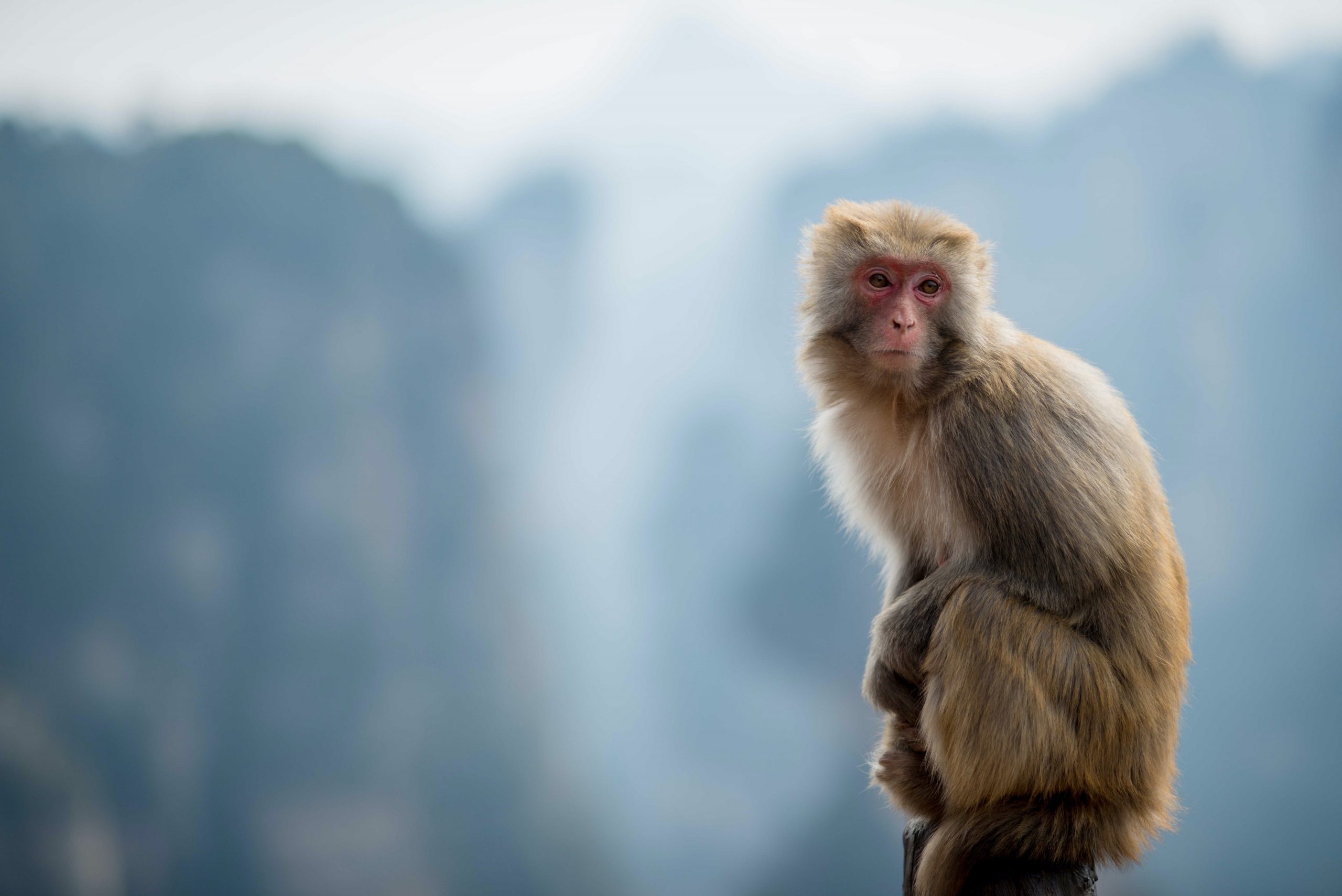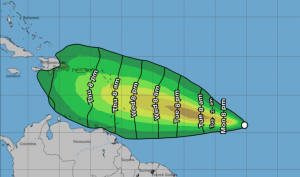With necks craned and eyes shielded from the sun, dozens of people gathered Wednesday around a towering eucalyptus tree in the heart of Puerto Rico’s bustling capital for a most unusual sight: a rhesus macaque monkey on the loose.
It was first spotted clinging to the tree’s branches Tuesday morning. Firefighters and other officials struggled to coax the monkey off the tree as the crowd offered suggestions.
“Give it some lunch to make it come down!” one man yelled.
“It’s too fat to come down!” retorted a woman nearby.
“Oh my gosh, it must be scared,” chimed in a third person.
When the first call reporting the monkey came in Tuesday morning, Ramón Luis Marcano, a lieutenant with the island’s Department of Natural Resources, did not believe it.
The caller reported the animal was in a tree on a busy, three-lane street that crosses the Santurce neighborhood in the capital of San Juan. “And I’m like, ‘Where?’”
He went to the scene with doubts, but there it was: a juvenile male rhesus macaque, which is native to south, central and southeast Asia.
“This is not normal,” Marcano said on Wednesday as he observed workers from his agency place a ladder between the tree and the rooftop of a nearby apartment and filled a cage with water, oranges and bananas to lure the monkey.
World Animal Day 2021: History, significance and aim
But the monkey refused to budge further, moving up and down the tree at times to the delight of the crowd below that included students, security guards and waiters.
“Look! Look! It’s moving! There it goes! There it goes!” yelled one woman as she pointed upward.
Police directed traffic as drivers slowed down to try to catch a glimpse of the monkey, which remained largely hidden by leaves and branches.
Marcano said he has no idea where the monkey came from. Rhesus macaques, often descended from escapees from research projects, have been found on Puerto Rico’s main island and hundreds of them populate Cayo Santiago, a tiny island off Puerto Rico’s southeast coast, where they are allowed to roam free.
Best friends and berries: Watch this adorable bond of a goat-monkey duo
But they’re very rare in urban areas — let alone on busy streets far from fruit trees and other sources of food. The only food available along that stretch of road where the monkey was located is a high-end food truck park and a handful of small, indoor cafeterias.
Rhesus macaques are omnivores and considered one of the least friendly monkeys. They have reddish faces and bottoms and live between 20 to 40 years in captivity. They also can transmit the herpes B virus to humans, who can die from it if they don’t receive immediate treatment.
Marcano said that once the monkey is captured, it will be taken to a veterinarian and later placed with other rhesus macaques at the Dr. Juan A. Rivera Zoo in the western city of Mayaguez. The zoo has been the target of recent complaints and demands that it close following allegations of injuries and inhumane killings.
Picture and videos of the monkey filled social media, with the animal drawing ever-more attention while staunchly staying in the tree.
“I feel bad for it, honestly,” said Stephen Hoppe, a 34-year-old business owner who shot a video of the monkey. “I imagine it’s terrified. … Everyone is wondering where it came from.”







